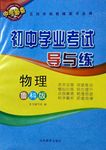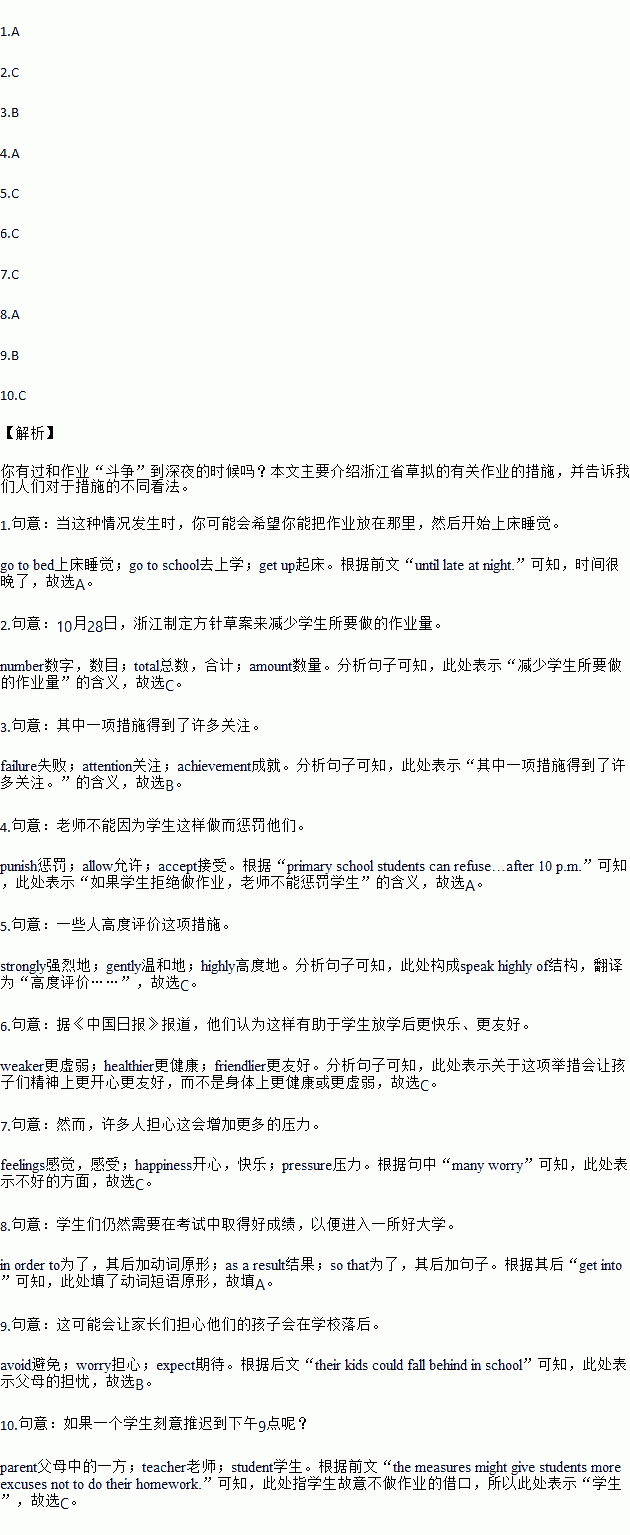题目内容
Many of you may have had the experience of struggling(与…作斗争) with homework until late at night. When this happens, you might wish that you could just leave the homework as it is and ________. Kids in Zhejiang province might be able to do so soon.
On Oct 28, Zhejiang worked out a draft guideline(方案草案) for reducing the_____ of work students have to do. The guideline has 33 measures(措施) for both schools and parents, CGIN reported.
One of these measures has got a lot of ______ ---if their parents agree, primary school students can refuse to do homework after 9 p.m. and junior high school students can refuse it after 10 p.m. Teachers can't______ students for doing so.
Some people speak _______of the measure. They believe it will help students feel happier and ________after school, China Daily reported.
However, many worry that it will add more _______. Students still need to get good scores on their exams ________get into a good college. This might make parents______that their kids could fall behind in school. They might turn to after-school tutoring.
Others also pointed out that the measures might give students more excuses not to do their homework. “What if a _______just puts it off unti1 9 p.m?"One person wrote on Sina Weibo.
1.A.go to bed B.go to school C.get up
2.A.number B.total C.amount
3.A.failure B.attention C.achievement
4.A.punish B.allow C.accept
5.A.strongly B.gently C.highly
6.A.weaker B.healthier C.friendlier
7.A.feelings B.happiness C.pressure
8.A.in order to B.as a result C.so that
9.A.avoid B.worry C.expect
10.A.parent B.teacher C.student
 初中学业考试导与练系列答案
初中学业考试导与练系列答案
